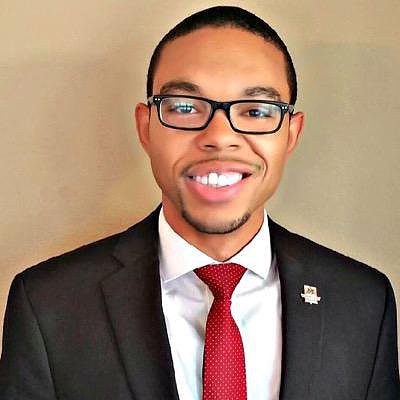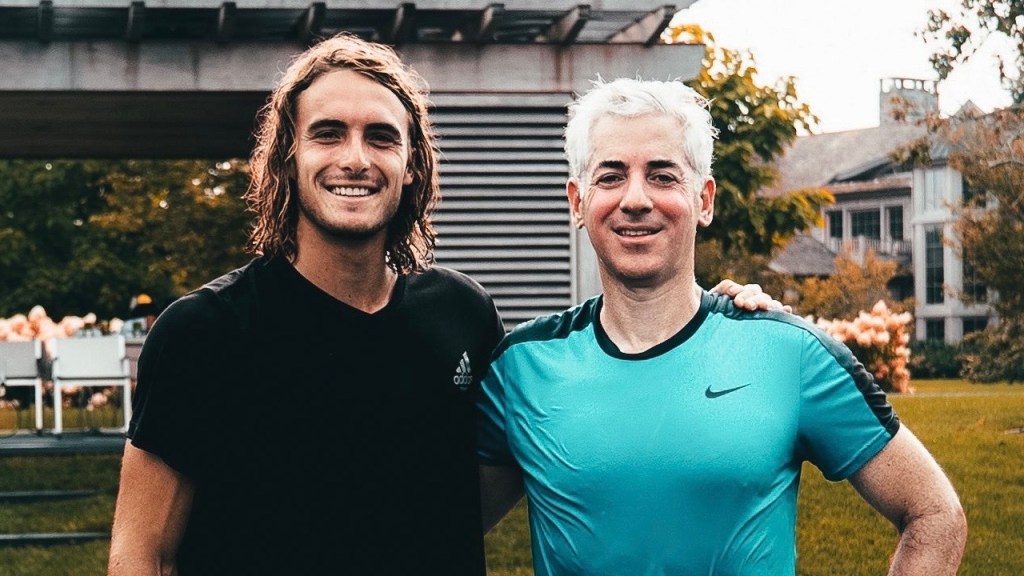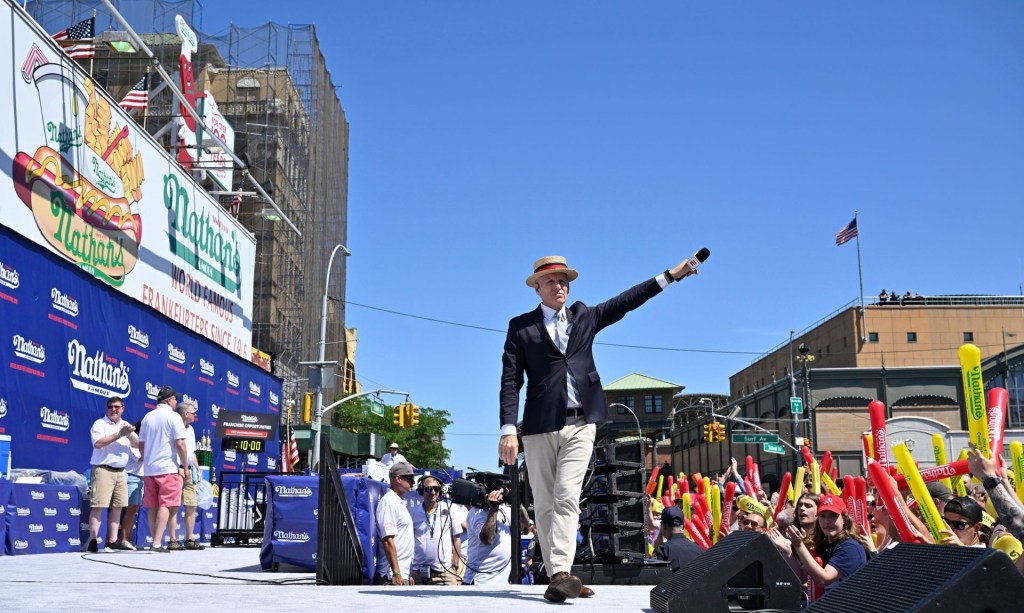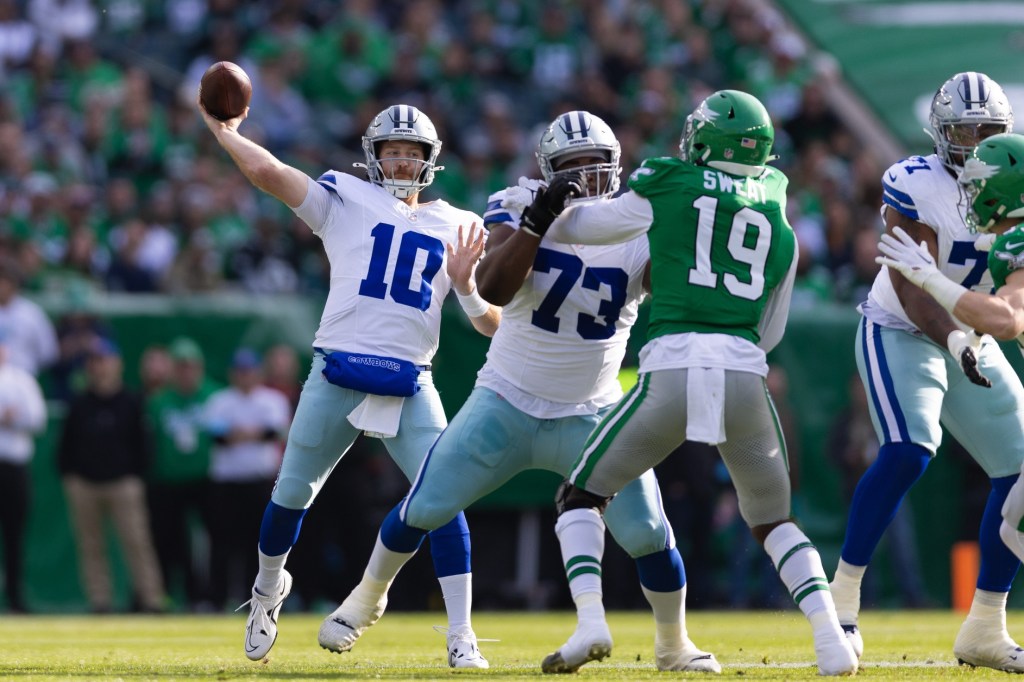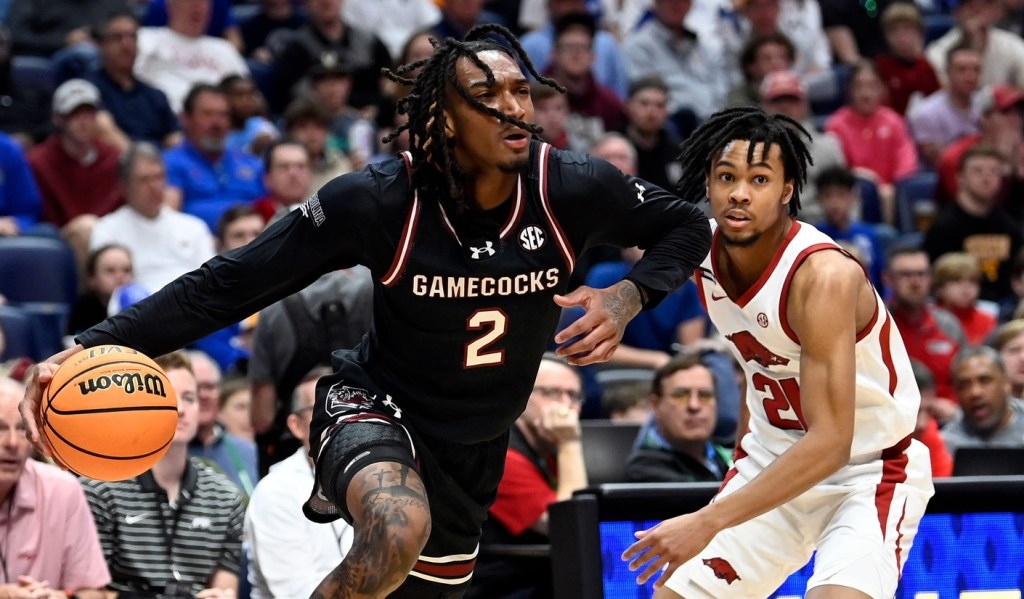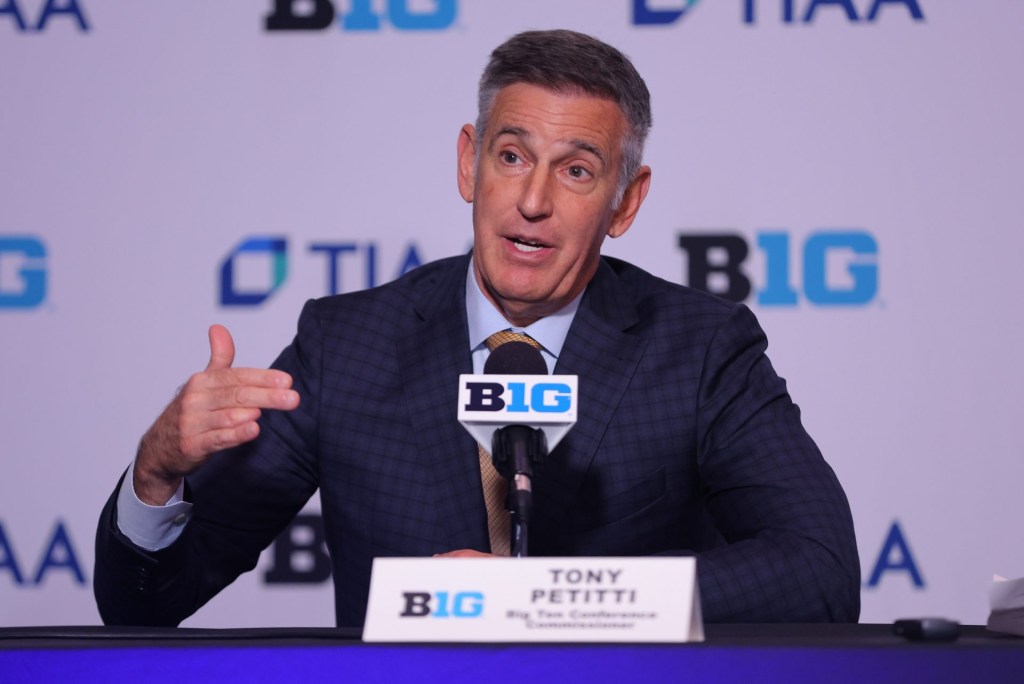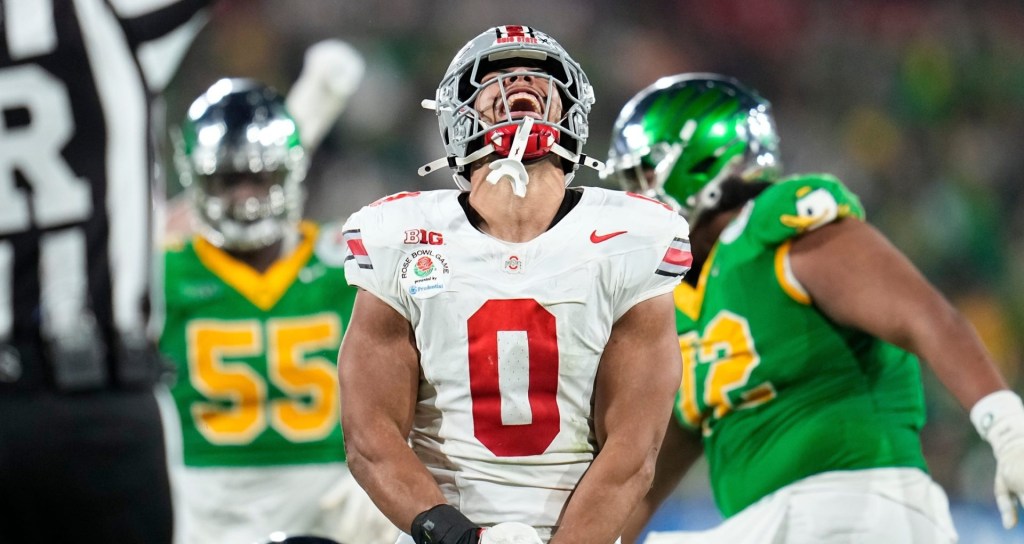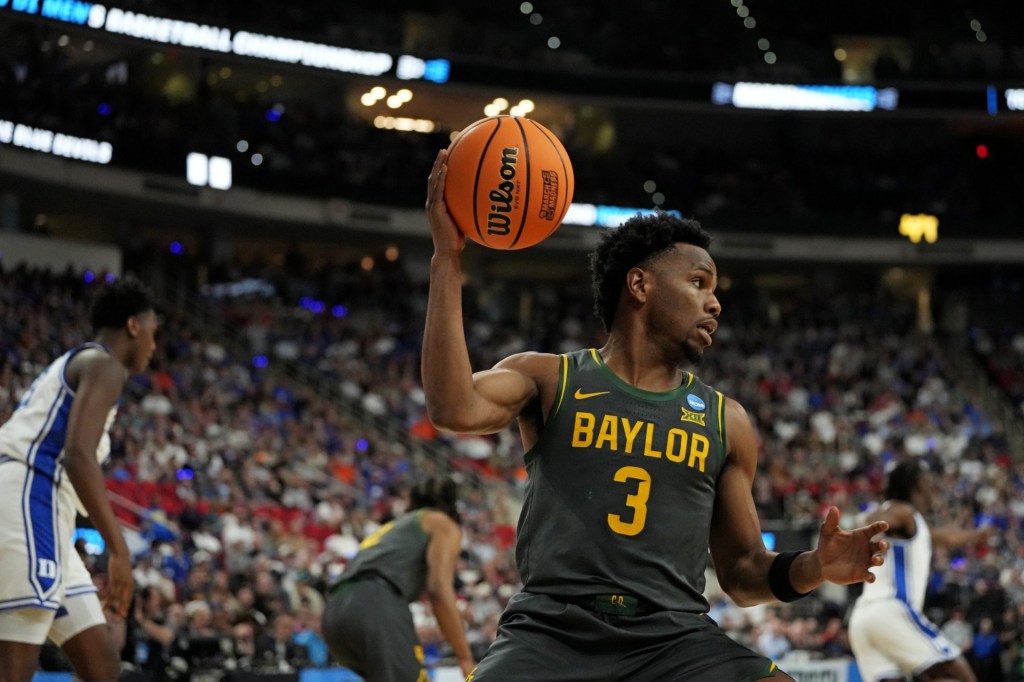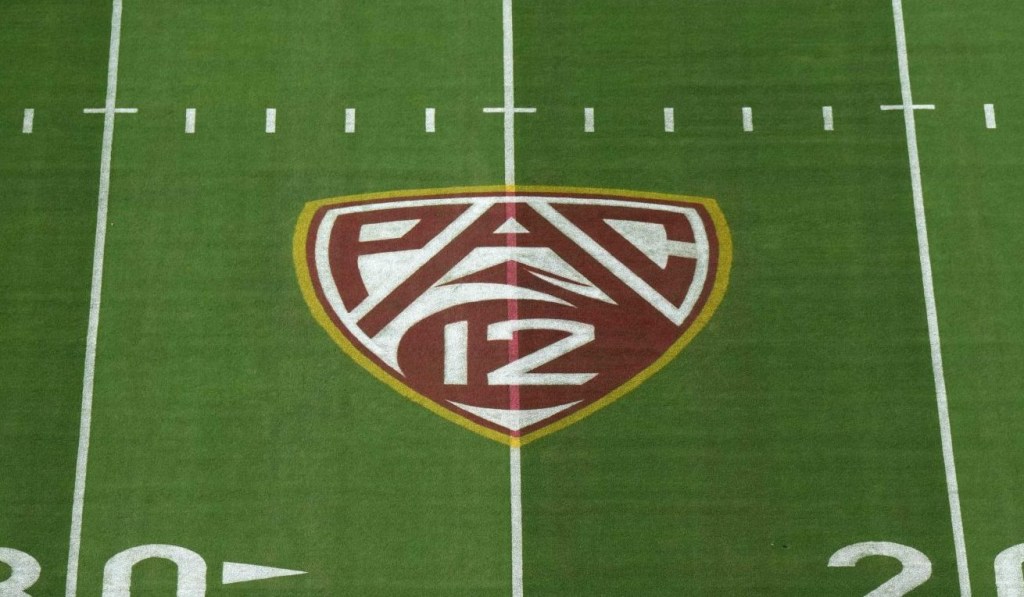By: DaWon Baker, @dawonbbaker

Front Office Sports is proud to have sat down with Kevin Young, Assistant Director of Event Presentation for Miami University Athletics. His primary duties focus on creating the best game-day experience for Miami University fans for a number of sports, whether it’s with marketing, videos, music, or everything in between. He works with student organizations on campus to help with the game day experience as well. A native of St. Louis, Kevin has made stops with the Cardinals, George Washington University athletics, and even Red Bull. Kevin was kind enough to give us his story about his background, his passion for sporting events, and why he cherishes his position every day.
We see that you have a diverse background in sport, including marketing, event planning, and ticket sales. What is your personal favorite thing about working in sport? What avenue of your work do you like the most?
Coming from me, it’s about being around athletes and coaches, a big part of what I do now is fan experience. A big thing that attracted me to my current position was working with fan experience on game day. I love working with the people around me to enhance the fan experiences, whether its through music or the videos we put together. It’s awesome to see how it comes together on game day and being able to energize our student section and fans is something I definitely take pride in.
You recently moved into a new position at Miami University of Ohio; explain your position and responsibilities there.
I have a lot of experience in marketing, but my current position takes things from marketing, promotions, and game operations. Right now I get to work with all different sports. I oversee our scripts and direction in games, game day music, our game-day videos and ideas, and intro videos. I work with just about everything on game day except for the actual play of the game. I have my hand in a lot of different pieces, which I love. I get to incorporate all of those things into what our fan base wants and I enjoy that.
What sparked your interest in sport business and the sporting industry?
I always knew I wanted to do something in sports. I started off as a golfer in high school and college; I was a golfer my freshman year of college and I thought I wanted to be a golf pro. I was at Coastal Carolina, which has a program for professional golf management and I was studying and training to be a golf professional.
I did that for two years and after that I decided it was time to look for something else; I changed my major, however, I always knew I wanted to do something in sport. The next year I got my first internship in sport working with the St. Louis Cardinals. I started in sales, and anyone who works in the industry knows that sales are a key-piece you need moving forward in whatever avenue you want to go in. That was something that was beneficial to me, to see how things worked from a sales perspective in my first experience in the industry. Moving on from that, I had an opportunity to work with Red Bull, mixing in a marketing piece to my experience. After that, it kind of clicked for me that sports marketing was what I wanted to go into.
You actually led your intern group in ticket sales with the Cardinals. What made you so successful in selling tickets?
I really try to connect our student athletes and team to our fans, whether it’s by selling tickets, fan engagement, videos, marketing or anything. That’s one thing that helped, especially in the role with the Cardinals. Growing up in St. Louis, you know that everyone is a Cardinals fan. So once we got people down to the stadium and showed them around, it was an easy sell. I was very passionate about the Cardinals and I’m passionate about what I do now. I feel like if I get talk to someone on the phone or get someone to sit down and speak with me, I can relay that passion. That’s something I enjoy doing and the passion shows when I talk to people. Even with the stuff I produce on game day, I think my passion shows through that as well. I think people appreciate that and it resonates with them.
What did you learn most in your position at George Washington?
In my last position, I oversaw seven teams, women’s basketball being the main team. When I went in, we had a new coaching staff from Notre Dame, coming off of two national championship appearances. The expectations were very high. Working with that staff set me up for greatness, just seeing how a top tier program was ran, and being around them everyday, I learned a lot. Feeding off the personality of the team, coaches, knowing our target demographic, who’s coming to our events and how we can tailor our experience to our demographic on game day, are all things I take into account in my position. But it’s important to know what you’re working with. Marketing for men’s and women’s basketball, and football are two different animals. You have to put together elements and different pieces and know that something small like music and graphics can change the game; knowing the difference going in definitely helps.
What did you do that has helped you progress in your career to this point? What advice or suggestions would you give someone who is looking to break into the sport industry?
In this industry it’s all about networking. As large as it seems, this industry is very small. I’ve come across a lot of great people and finding mentors along the way has helped me. Being a member of the National Association of Collegiate Directors of Athletics (NACDA) and the National Association of Collegiate Marketing Administrators (NACMA) have helped me, especially being a member of the mentoring program, as both a mentor and mentee.
My first mentee just accepted an assistant director position at Virginia Tech, and my mentee from this past year just accepted a full time marketing internship at Notre Dame. Seeing them grow from when I first met them to now has been awesome. I try to give back when I can and share my knowledge. As far as networking, it’s about not being afraid to send an email to someone if you have questions about something; people will be willing to help you out, so don’t hesitate to reach out. It can definitely get you in the door and they can give you great advice.
What types of things do you like to see in your employees or staff? What qualities do you consider to be vital to progression in this career?
I work in athletic events and presentations. It’s catered around game day operations and it’s a new position. I’ll eventually bring in an intern at some point. I look for someone who is creative and is able to manage things. I think that you have to have the time management skill, as there’s a lot of stuff going on with game day operations, whether its trying to determine when is the next time-out, what music is playing next on the video board, and things like that. You always have to be three-to-four steps ahead and be able to work with things on the fly in this position.
Thinking on your feet is critical. Taking risks in this position is another big thing. One last thing, you have to be able to take criticism well. As hard as you work, you have to be open to other critiques and ideas, and be willing to see things from different angles and viewpoints. I tell people all the time that I don’t know everything about marketing or game presentation, and I am always looking to learn new things.
What is your favorite game-day experience that you’ve witnessed?
Back at George Washington (GW) during my second year, our women’s basketball team was bringing in a top-10 team for the second game of the season. It was a big year for us, bringing in a team of that caliber at the beginning of the season; we wanted to do something big for that. I did a bit of research and found out that GW had never done a whiteout, so that’s what we did. It was already a heightened sense of intrigue from students, especially with free t-shirts and tailgates prior to the game. I also did some research and found out that the new Hunger Games movie was releasing around the same time as the game.
I wanted to tie in a Hunger Games theme in the game as well. I reached out to different student organizations on campus, and had them offer up tributes for a halftime game we had planned. It was very exciting. The thing that took it over the top was when I was able to contact IMG, a sport sales consulting firm that worked with GW. IMG was able to get advanced screening passes to the movie. We had the passes about three days before the movie came out, and we advertised that and it just blew up, especially on campus with our students. On game day, students showed up and made it one of the top attended games ever for GW women’s basketball, and we were able to get the win. It was a springboard for our season and it was great for our coaches, fans, and definitely one of the highlights of my career so far.
Finish this sentence with one word or phrase, and explain why. “Sport marketing is….”
CONNECTION. It’s a connection between the athletic department and the fans. When we put together marketing plans, we try to map out who our target demographic is and how we are going after each one. For instance, if we have five target demographics, we aimed to hit at least three. If we are hitting all five that’s great, but if we are hitting at least three of those groups, we are good. Taking it back to connecting, when we are shooting our videos before the season, we have those five groups in mind. For instance, we had a large elementary school day game, got them out to the arena for free, had a mid-day game and that was one of our target markets, which was big groups and kids. Sport marketing is connecting with fans at all levels.
Any last words of advice or words of encouragement to leave with readers?
Working in sports is a privilege. For people who do it on a full-time basis, they understand not to take it for granted. One thing I try to do is be aware of the life we have, and how we can impact fans. We get fans in our stands and arenas for a two-hour mark. How can we make a great impact? What can we do in this time frame to make them forget about whatever stress is going on in their life, and just have fun?
We have to remember that we are in the entertainment business. One of the things that I really enjoy, and one of my favorite promotions I’ve done was a Special Olympics day game. Going back and reading some emails and feedback from parents who had kids that participated, a day like that where we get the kids on the court with the athletes is something that they will remember forever. Creating those types of experiences is what keeps me going. I come here everyday and ask myself, how can we make this experience better for fans? That’s why we are here.
We would like to thank Kevin for his time and insights and we wish him the best in his future endeavors!
You can follow Kevin on Twitter here or connect with him on LinkedIn here!
